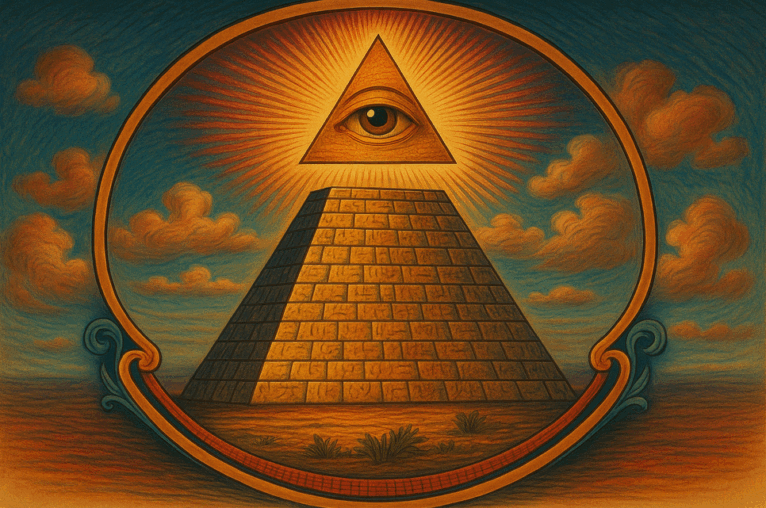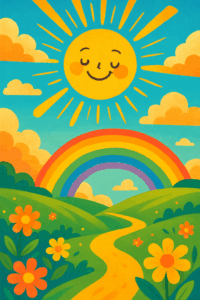A World Without War, Fanaticism, or Oppression

🌍 A World Without War, Fanaticism, or Oppression
What Could a New, Fair and Free World Look Like?
Imagine a world where people have stopped fighting each other.
Where there are no wars over ideology, religion, power, or superiority.
Where people can believe what they want, but no one forces their beliefs onto others.
A world that is united, free, and governed by fair and just principles.
Does it sound like a utopia? Maybe. But every better world begins with an idea.
And when that idea starts to spread among people, it can become reality.
Imagine a world where:
-
Children grow up without fear of being sent to war.
-
Education and truthful information are available to everyone — not just the privileged few.
-
Decisions are made fairly, based on truth — not force or manipulation.
-
Respect for nature, life, and the dignity of every human being is a given.
-
People cooperate because they know they can achieve more together than divided.
Such a world wouldn’t be perfect.
People would still have different opinions, cultures, and ways of life — and that would be its strength.
Freedom means diversity without oppression. Peace means understanding instead of pressure.
And justice means rules that apply to everyone equally — without exceptions.
If you feel the same, join in.
We’re not waiting for a leader or a miracle.
Change begins when we start to want it.
When we begin to speak, to share, and to create.
Maybe this is the first step.
An idea that can start a new direction.
A world where words like peace, respect, and freedom are not just ideals — but everyday reality.
🌐 One Planet – One Just System
All countries would unite in a voluntary global alliance.
A single global parliament and a democratically elected planetary president would emerge – without dictatorship, without violence, based solely on the democratic will of all people.
Every citizen of the world would have an equal voice, regardless of origin, nationality, or faith.
Such a system wouldn’t mean the loss of cultural identity – quite the opposite.
Languages, traditions, and unique heritages would be protected and respected within a common framework built on mutual respect, cooperation, and equality.
Instead of competing for power and resources, nations would collaborate to use them sustainably.
Instead of borders that divide and cause conflict, there would be bridges – physical, digital, and human – that connect us.
By dismantling unnecessary armies and ending the arms race, vast resources could be redirected toward education, healthcare, science, and environmental protection.
Weapons would be replaced by books. Concrete by forests. Fear by trust.
Every human being on this planet would have the right to a dignified life – with access to clean water, food, education, medical care, and a safe home.
Not as charity, but as a basic human right.
And technology? It would serve the people – not corporations or governments.
Artificial intelligence would help manage the world fairly and transparently, under public oversight – not as a tool of power, but as a tool of wisdom.
Such a system would not have a single ruler. It would have billions of equal voices, creating harmony – not chaos.
A world led not by force, but by wisdom.
Not by fear, but by hope.
🛑 Banning Hateful Ideologies
In the new world, there would be no place for ideologies that incite hatred, divide people, or justify violence.
Such doctrines would be clearly identified, named, and banned — not as censorship, but as a necessary defense of life and freedom.
This would include:
-
Fascism and all forms of authoritarian nationalism that label some people as "better" and others as "lesser."
-
Communism in its oppressive, totalitarian form, where the individual is stripped of freedom in the name of the "collective."
-
Religious fanaticism, which twists faith into a weapon used to justify war, discrimination, or punishment of those who think differently.
-
Calls for war, violence, or superiority of any group over another — whether based on race, religion, gender, orientation, or belief.
Freedom of speech would still be preserved — but not at the cost of others' safety and dignity.
Words that fuel hate are not opinions. They are tools of destruction.
Anyone who consciously sought to start a war, or use faith or ideology as a weapon, would face an ethical court — independent, transparent, and led by an international collective of trusted individuals from different fields: philosophy, law, science, and ordinary life.
And if someone still insisted on conflict?
They would be peacefully isolated — not as punishment, but as protection for others.
Figuratively speaking, they would be "locked in a cage with their opponent," given space to resolve their issue directly — without dragging innocent people into it.
In a world where peace and justice are priorities, there is no space for ideologies that spread fear.
Diversity is welcome. Debate is essential. But hate — no matter the flag or slogan it hides behind — has no rightful place.
✝️ 🕊️ A Secular but Free Society
Every person has the right to believe in what they feel is true — whether it's faith in a god, in nature, in science, or simply in the strength of the human spirit.
Faith is a deeply personal matter.
And for that very reason, it should remain an inner freedom — not a tool for pressure or dominance over others.
In the new society, these principles would apply:
-
Faith is a private matter. Everyone has the right to believe, not believe, or seek answers in their own way.
-
No one may impose their faith on others — and certainly not under the claim that their path is the only correct one.
-
Public schools, government offices, and state institutions would be fully secular — neutral and open to all without distinction.
Children would not be taught that "there is only one true god."
Instead, they would learn about different religions as cultural, historical, and philosophical developments — just like we study Ancient Greece or the gods of Egypt.
With respect, not ridicule. With understanding, not indoctrination.
The goal of education would not be to produce "believers" or "atheists,"
but to raise free-thinking individuals capable of understanding various perspectives and forming their own views.
Instead of fighting over “the truth,” mutual respect would prevail.
Instead of dividing people by belief, equality would unite them.
And spirituality? It wouldn’t be banned — only separated from the power structures that have abused it for centuries.
Such a society wouldn’t be anti-faith.
It would be pro-freedom — including spiritual freedom.
But no belief system would hold special privilege to define the laws, the punishments, or the truth for all.
🎓 Education as the Path to Freedom
A truly free society begins with an educated person.
Not just someone filled with information, but someone who can think, doubt, question, and decide based on both reason and emotion.
Education would be built on foundations of:
-
critical thinking, fostering independence rather than obedience
-
logic and argumentation, teaching how to engage in discussion without personal attacks
-
science, ethics, and philosophy, linking facts with values
-
recognition of manipulation, propaganda, and psychological pressure, so children and adults alike can protect themselves and others
Learning wouldn’t be about memorization but about finding connections, asking questions, and forming one’s own opinions.
Instead of fearing mistakes, children would learn that error is the beginning of understanding.
Instead of tests and grades, they would be given space to develop their unique strengths.
Emphasis would be placed on:
-
practical life skills — from communication and cooperation to mental well-being
-
self-awareness — understanding one’s motivations, emotions, boundaries, and values
-
respect for diversity — as a natural part of the world, not a threat
Teachers wouldn’t be authoritarian figures but guides — trusted partners in the search for meaning, truth, and freedom.
Since education is a lifelong journey, access to learning would be available for all generations.
Learning would not be an obligation but a natural desire — part of a culture that values knowledge while understanding that not all answers come immediately.
Such education wouldn’t just prepare for a “job.”
It would prepare for life — in all its depth and breadth.
🕊️ Peace as a Fundamental Value
In the new world, we would firmly recognize that:
-
War is not a solution, but a last and ineffective option that should always be overcome through dialogue and understanding.
-
Difference is not a threat, but a source of richness and inspiration that teaches us to grow and develop together.
-
One’s freedom ends where another’s freedom begins — mutual respect is the basic rule that protects every individual and the entire community.
In such a world, armies would have exclusively a defensive character — they would not be instruments of aggression, but guarantees of security.
Attacking others would be not only impossible but also meaningless — because the borders that divide nations today would disappear.
We would all be citizens of a single planet, united by a common goal to live in harmony and cooperation.
The army’s role would rather be to protect the entire planet from external threats — such as impacts from asteroids or potential aggressive invasions from other planets or extraterrestrial civilizations.
This role would require cooperation among all nations and the use of the most advanced technologies to safeguard life and global peace.
Moreover, peace would also mean a life without fear and violence in everyday life — in cities, schools, families, and workplaces.
Conflicts would be resolved through dialogue, mediation, and mutual understanding, not by force or weapons.
Peace would not be merely the absence of war but an active state where society promotes:
-
Justice and equality, ensuring that no one is oppressed or disadvantaged.
-
Sharing of resources and responsibility for the planet, because true peace also means a sustainable lifestyle and care for nature.
-
Empathy and compassion, enabling healing of past wounds and building bridges between people and cultures.
Peace as a fundamental value would shape all aspects of life — from politics through education to every individual’s daily decisions.
It would be the cornerstone upon which a free, just, and humane society would grow.
⚖️ Summary of Key Principles
-
✅ Peace without war — because true progress cannot grow from destruction and suffering, but from calm and cooperation.
-
✅ Freedom without coercion — freedom is not only the right to do as one wishes, but also the respect for others' rights without interference or force.
-
✅ Faith without imposition — everyone has the right to their own spiritual world, but must not use it as a weapon against others.
-
✅ Unity without dictatorship — true unity arises from mutual consent and understanding, not from forced rules and fear.
-
✅ Reason and compassion instead of fanaticism — the path to a better world leads through openness, understanding, and kindness, not through blind hatred.
This proposal is not about limiting freedom, as it might sometimes seem.
On the contrary, it is about protecting true freedom — the freedom to believe, think, speak, and create according to one’s conscience, but always with respect for others.
Without coercion, hatred, or bloodshed.
Perhaps this ideal is still distant and the journey to it challenging.
But only when we start talking, thinking, and acting on it today do we have a chance to come closer.
Each of us can be part of the change — by a small step, words, or deeds.
Because a better world does not begin somewhere else, but here and now — in our minds and hearts.
